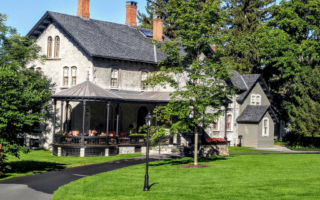Using a solicitor
If you are buying or selling property in France, a notaire will handle the legalities but you might like to appoint your own bilingual solicitor too, says Annie J Digby
I am regularly contacted by potential clients who intend either to sell or purchase a property in France and ask me why they should employ the services of a UK-based solicitor when the transaction “will in any event be dealt with by the French notaire”. So I thought it would be helpful for such prospective clients if I explained why I believe they should appoint a solicitor to assist them.
The first myth to be dispelled is that, contrary to certain rumours, many notaires nowadays will be very happy to work alongside a solicitor. It is still general practice for a single notaire to represent both the purchaser and the seller.
Notaires are therefore increasingly happy to have a solicitor on board who will discuss the transaction with them and check or possibly amend their drafting. The vast majority of notaires are now used to working with solicitors and they tend to welcome their involvement so that mistakes and potential problems can be more easily avoided.
In any event, our clients should also know that UK-based solicitors do meet with French notaires to discuss issues specific to British buyers and sellers. So, far from being at war with one another, we actually sing from the same hymn book – at least most of the time!
From a buyer’s point of view, there are many advantages in having a solicitor and they include the following:
l A solicitor will provide independent legal advice and act in the best interests of his clients as his fees are not dependent on the completion of the transaction. In addition, he or she is a member of the Law Society, regulated by the Solicitors Regulations Authority, and covered by professional indemnity insurance.
l A solicitor will explain the terms of the sale contracts such as the compromis de vente, acte de vente and associated documents in plain English and in writing so that his client has a written record for current and future use. I would like to stress that a mere translation of these two contracts by a translator or an estate agent is not sufficient as they can only translate clauses that are in the contracts. Therefore if a clause is missing or should be included to protect the interests of the buyer, a solicitor will point it out while a translator will not be in a position to do so.
l Sometimes the notaire will only become involved once the purchaser’s cooling-off period has elapsed. This applies when the compromis de vente has been drafted by the estate agent who will send his full dossier to the notaire at that stage of the transaction and not before. It is therefore particularly important to have a solicitor on one’s side in this situation as, unfortunately, some compromis are drafted without first checking the seller’s title deed. A solicitor will request a copy at the outset in order to avoid any errors on the seller’s or the property’s details.
The description of the property in particular is worth checking in the seller’s title deed as any discrepancy with the current layout of the property may alert a buyer to the fact that alteration or extension works may have been carried out during the seller’s period of ownership.
l A solicitor will raise enquiries in order to obtain as much information as possible about the property. I disagree when I hear people say that solicitors do not live locally and therefore cannot advise their clients properly or solve a problem satisfactorily. By asking the right questions to the right people and raising the relevant enquiries, a totally bilingual solicitor can do wonders when a problem occurs.
l The client will be kept advised at all stages of the transaction. This is always greatly appreciated by clients who do not like being kept in the dark, as can be the case sometimes with notaires who aren’t always used to informing their clients of what the next step in the transaction is going to be. We all have to understand that there are more cultural differences between our two countries than we sometimes think and this is one of the reasons why the roles of a notaire and a solicitor are so different.
l A solicitor will explain and advise on the best way to structure ownership, taking into account the client’s estate both in France and in the UK. It cannot be expected of a notaire to advise what consequences a particular French ownership structure will have on a client’s UK estate for inheritance tax purposes. A solicitor specialised in both jurisdictions, however, can provide such advice. Too many people fail to understand that the interaction between the two legal systems can be complex and that great care must be taken.
l If the purchase price is paid in pounds sterling and not in euros, or if the transaction refers to an exchange of a UK property for a French one, a solicitor will be able to facilitate the transaction by liaising and collaborating with the notaire so that the transaction runs smoothly.
l As far as a seller is concerned, he too may want to appoint a solicitor, as a seller has a number of responsibilities and obligations which he should fully understand before committing to a sale of his property.
These are only a few examples and I could give many more to illustrate the need for a solicitor. I am obviously biased but hope that this article will make potential buyers and sellers more aware of the pitfalls that they may encounter in what should be one of their most memorable experiences – for the right reasons!
Annie J Digby is a solicitor at Guellec-Dugby & Co
Tel: 01604 878961 www.guellec-digby.co.uk
Share to: Facebook Twitter LinkedIn Email


